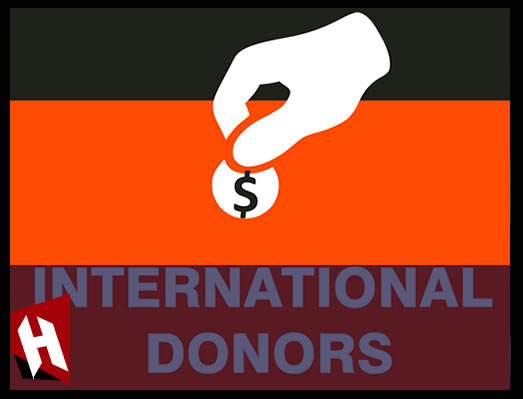
Development aid and expertise have assumed special significance for many countries worldwide vis-a-vis their resource constraints and lack of capacity to plan, develop and implement projects and programmes. International donors and development organizations assist the developing and the under-developed world to overcome their obstacles to socio-economic progress, providing financial support, together with a wide range of technical and administrative facilities.
The European Union is the world's leading donor working with partner countries across the globe. While the member states themselves are beneficiaries of the EU regional funding (i.e. structural funds), the EU External Assistance aims at protecting European citizens and the stability & prosperity of countries beyond the EU borders, offering donations to countries of all five continents, depending on their relation with the EU.
EU's development policy assists countries throughout the world, promoting good governance and human & economic development, and tackling universal issues, such as fighting hunger and preserving natural resources. EuropeAid delivers aid through a set of financial instruments, tailored to fit the individual needs of each region and country. Among those instruments, the European Neighbourhood and Partnership Instrument (ENPI) supports the direct neighbours of the enlarged EU to undertake concrete actions that may ensure prosperity, stability and security of the entire Europe's neighbourhood.
Across its service lines and industry coverage, Hakkadosh Heritage Consultingis implementing multiple types of projects, including large-scale Technical Assistance projects, Framework Technical Assistance projects, provision of Services to Donors, and large-scale Research & Innovation projects.
Large-scale assignments for the provision of Technical Assistance (TA) refer to multi-disciplinary collaboration projects funded by international donors (World Bank, European Bank for Reconstruction and Development, European Investment Bank, International Finance Corporation, Asian Development Bank, African Development Bank, and mainly European Commission), worked out in partnership with stakeholders in government, the private sector, NGOs and citizens groups, mostly falling under the following pillars: institutional strengthening and capacity building for the transition to democratic society and market economy, helping strengthen institutions, administrative & judicial capacity, and civil society; preparation of candidate countries to manage Structural Funds, support of cross-border cooperation between the enlargement countries or between them and EU countries towards a sustainable economic, social and territorial development; support of regional development for investments in transport, environment and economic cohesion, and associated technical assistance, including assistance to manage EU regional funds; support of Human Resources Development for the development of human capital and reduction of social exclusion.
Short-term assignments in the form of Framework Contracts (FWCs) refer to the provision of technical assistance to countries benefiting from funds by international donors (World Bank and, mainly, the European Commission) in multiple sectors, mostly including services for drafting of technical specifications, feasibility studies, tender evaluation, capacity building of state organisations, technical control of the project progress, monitoring and supervision of projects.
Individually tendered projects or framework contracts for the provision of multiple Services to Donors (World Bank and, mainly, the European Commission) aim at ensuring the operations of EU institutions or programmes through policy advice, technical and scientific assistance, legal consultancy, statistical analyses, sector or market studies – surveys – analyses – impact assessments, evaluations, training, communication – dissemination & publicity – public opinion analysis.
